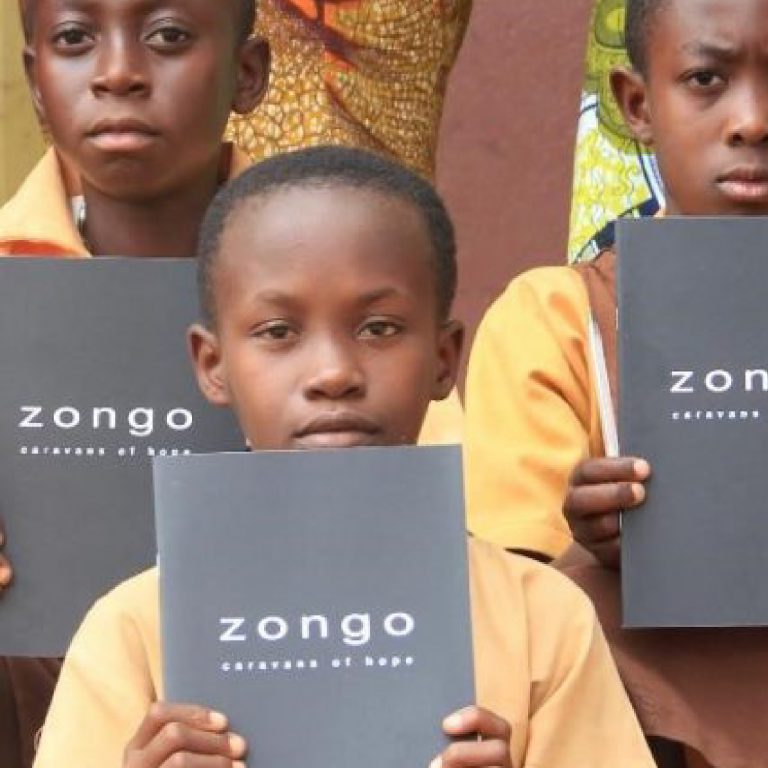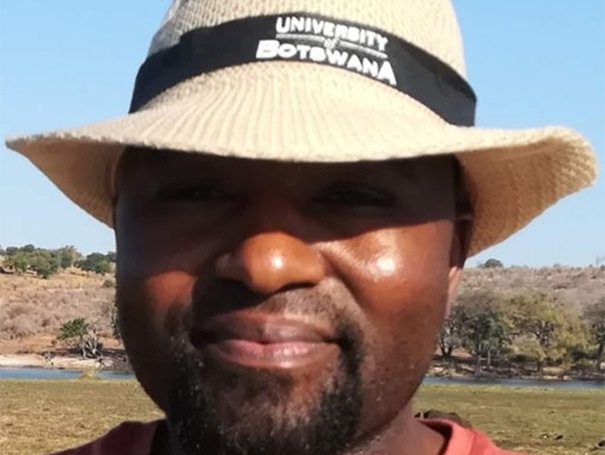DESIS KNUST LAB
Kwame Nkrumah University of Science and Technology DESIS Lab
The Kwame Nkrumah University of Science and Technology (KNUST), is positioned as the premier design school in Ghana. As such, the DESIS lab, is hosted by the Department of Communication Design at the KNUST.

University
Kwame Nkrumah University of Science and Technology
Country
Ghana
Team
Dr. Ralitsa Diana Debrah
About Us
The Kwame Nkrumah University of Science and Technology (KNUST), is positioned as the premier design school in Ghana. As such, the DESIS lab, is hosted by the Department of Communication Design at the KNUST. In this DESIS Lab, we have created a space for learners to unitilise the concept of design for Social Innovation and Sustainability, exploring new design tools, new concepts, building on existing ideas to find sustainable solutions to problems in society. These activities are deeply rooted in the postgraduate programs and to some extent in the undergraduate program as well. So far in the DESIS.KNUST Lab, we have worked on several projects in areas such as Environmental Sustainability, Sanitation, Education and others.

Objectives
- Develop sustainable initiatives for social cohesion and development.
- Promote sustainable change through design tools and processes in society.
- Prepare learners for professional practice and meet global trends in design.
- Create an enabling environment for designers, educators and community members to innovate and act as agents of change in society.
- Transfer and communicate knowledge and skills for social innovation to other design schools in Ghana and West Africa (long term goal is to have desis.gh).
Our primary research activities revolve around the following
- Environmental concern
One of the ongoing projects is the 5-Star street project with a focus on environmental sanitation. The project is being managed by KNUST, Kumasi Metropolitan Assembly (KMA) and community members of Moshie-Zongo, Kumasi-Ghana. Additionally the DESIS Lab, KNUST, have engaged in other collaborative project with partners from University of Michigan (UM), USA, as part of community engagement activities for sustainability in Accra, Ghana. Through these projects students have engaged with community members in Nungua, Accra, Ghana to develop bio charcoal using found organic waste materials. The community engagement was a way of responding to environmental sustainability issues in the community of Nungua-Accra, Ghana. (Click to view: http://playgallery.org/stories/ghana/).
- Income generation/ entrepreneurship: one of the projects in this case is the Zongo Caravans of Hope project in a resource-restricted community near KNUST. Some of the emerging possibilities from interacting with this community has been skill training project which is ongoing, equipping the youth with basic skills for a lifelong career.
- Design performances: These are mainly projects we have done collaboratively with KNUST staff, other researchers across the globe and local community members in Accra and Kumasi, Ghana. Example is Re-Painting the RED, Vodafone project. In this case we used performances by local communities to put messages across to Vodafone company companies to reduce aggressive outdoor advertising in Ghana (Click to view:http://charlie-michaels.com/Re-Painting-the-Red). Soon after these activities we have observed the re-branding of Vodafone companies integrating peaceful Ghanaian Adinkra symbols in most of their brands.
- Zongo Caravan of hope: In this project, design was used as a tool to address pressing challenges in the community such as water, sanitation and youth unemployment. Participating members were mainly members of faculty working collaboratively with community members. One of the outcomes of these activities was a skill-training program for young girls in the form of a fashion school. The trainees will be using found materials in the community to create newer garments as a way of living sustainability and keeping the environment clean.
- A 5 Star Sanitation Street Project: Another major ongoing social innovation project from the KNUST is focused on improving sanitation within Moshie Zongo, a local community in Kumasi, Ghana. The current project proposes bottom – up approach, using Design for Social Innovation and sustainability concepts whereby designers co-create, co-design and collaborate with the main stakeholders – residents, landlords and designers– in prototyping a design system for tackling the sanitation and environmental issues within the Kumasi Metropolis. The project is code-named “5-Star Street. A 5-Star Street will seem to be the ultimate pride to behold. Streets will therefore have to struggle and maintain their status since there is a possibility of a 5-Star Street being demoted and vice versa at a particular time to previously awarded members.
- Abetenim community project: the project was developed with community members, KNUST, other university faculty members and NKA foundation. The project is located at the Abetenim, village in the Ejisu-Juabeng District, Kumasi, Ghana. The village is now affectionately called “UBUNTU” village. Some of the results from design activities in this village was an emerging maker space. The maker space is designed to serve as a creative space in the village, which could also be used for meetings, studying and working on art and design projects. School children from Abetenim community occasionally perform at functions at KNUST, as a way of exhibiting their talents and to showcase possibilities in the village.
Cape Peninsula University of Technology, University of Nairobi, Makerere University, Rio de Janeiro Federal University and Politecnico di Milano.
To integrate social innovation within the University of Botswana Industrial Design programme together with other contemporary initiatives which promote sustainability through design.
Neighbourhood care, cultural food festival, money saving schemes and greening the city, co-creating with the marginalised and disadvantaged communities.
PROJECTS
Our projects
Our projects range from: Neighbourhood care, cultural food festival, money saving schemes and greening the city, co-creating with the marginalised and disadvantaged communities.

For the poor and unemployed families who live in rural areas and have limited sources of income, it becomes a challenge to bury their beloved ones. In an effort to mitigate this challenge, families in rural areas form Burial Societies and contribute a small token every month.
Team

Coordinator
Prof. Richie Moalosi
Richie Moalosi is Professor in the Department of Industrial Design and Technology at the University of Botswana. He has over 20 years of teaching experience at the university level. He works with small micro-enterprises, community-based organisations and creative communities to uplift their brands and product or service innovation capabilities as these are considered to be the next engine of economic growth in Botswana and Africa. His specialisation and research interest areas include the following: design and culture, design education, sustainable design, social innovation, additive manufacturing, and post-graduate students’ supervision.

Operation Manager
Yaone Rapitsenyane
Yaone Rapitsenyane is a Service Designer and a lecturer of Sustainable Design at the University of Botswana. With over 10 years of university teaching and community engagement experience, he leads engagement activities such as workshops and collaborative teaching projects. His research interests work include imparting design capabilities in manufacturing and service SMEs, developing sustainable business models for SMEs and developing sustainable Product Service System curricula for African universities. He continues to publish in per-reviewed journals, book chapters and peer-reviewed international conferences.
Contacts
Get in touch with us if you liked any of our projects and would like to participate!
- Prof. Richie Moalosi | +267 355 4223
- Yaone Rapitsenyane | +267 355 4232
- Private Bag UB 0061 │Gaborone │ Botswana
MEMBERSHIP
DESIS Network’s purpose is “to promote design for social innovation in higher education institutions with design discipline so as to generate useful design knowledge and to create meaningful social changes in collaboration with other stakeholders.”
DESIS Network’s purpose is “to promote design for social innovation in higher education institutions with design discipline so as to generate useful design knowledge and to create meaningful social changes in collaboration with other stakeholders.” Applying members who share the same vision and fulfil the following requirements will become DESIS Labs.
Members can be legally constituted higher education institutions or Universities with design disciplines (hereinafter referred to also only as “higher education institutions” or only as “Universities”), private or public, sharing DESIS motivations and visions and supporting DESIS activities (Labs projects, international Initiatives, Platform improvements).
Once the Membership Request Letter and its attachments have been received by the International Coordination Committee, they will be analysed in order to verify if the formal requirements are satisfied. On this basis, feedback will be send to the interested teams.
Subscribe to
our newsletter
Discover our newsletter so you can stay updated on new activities and events! Subscribe now to receive news on your email every month.
